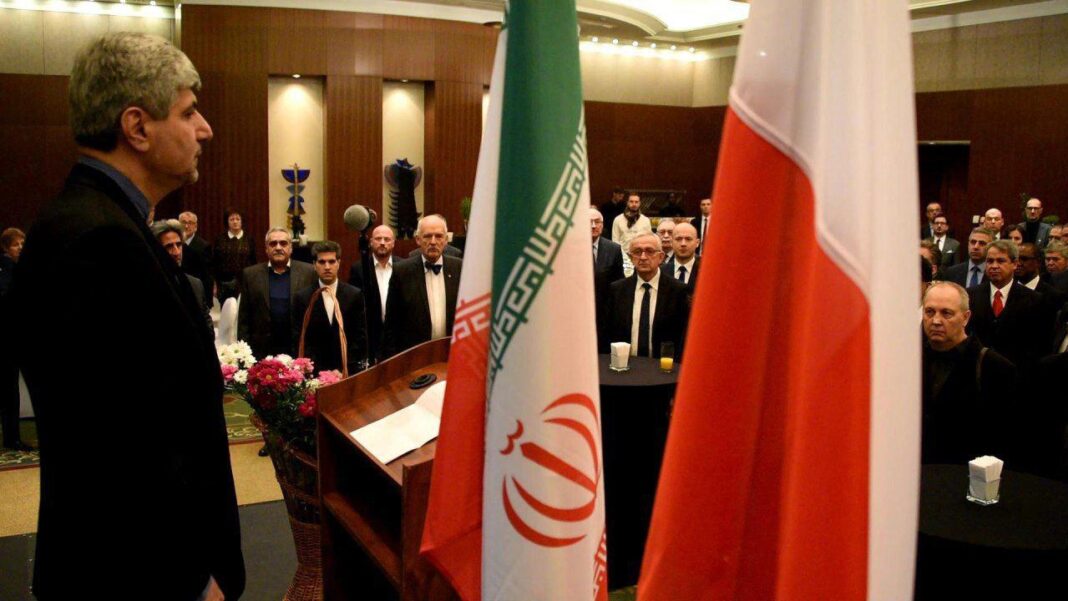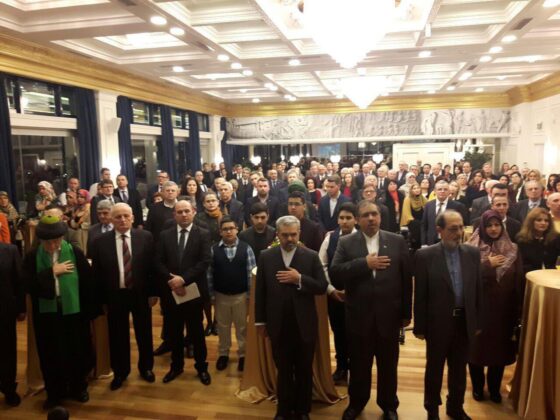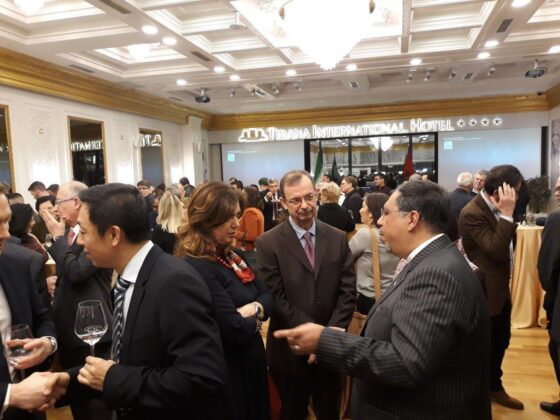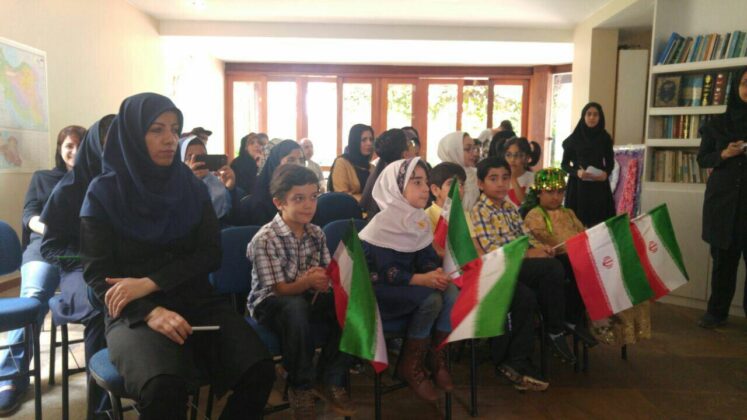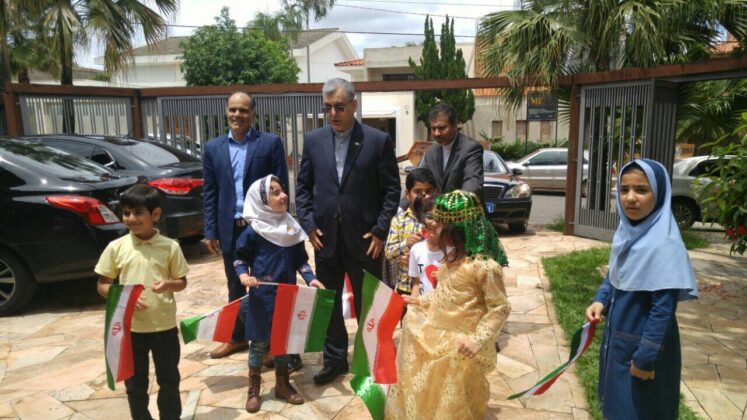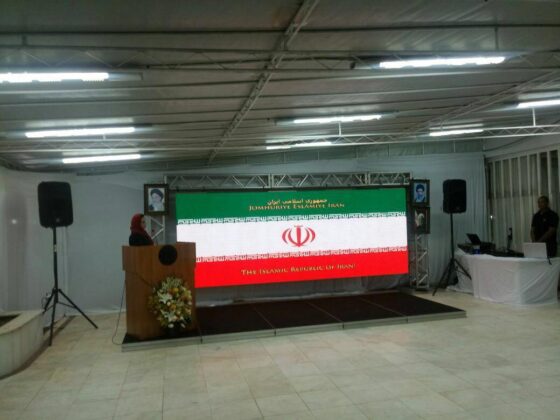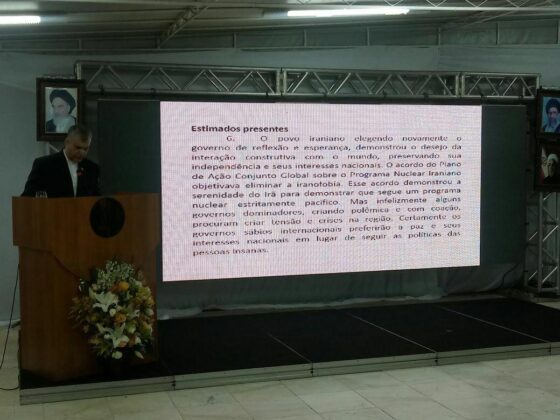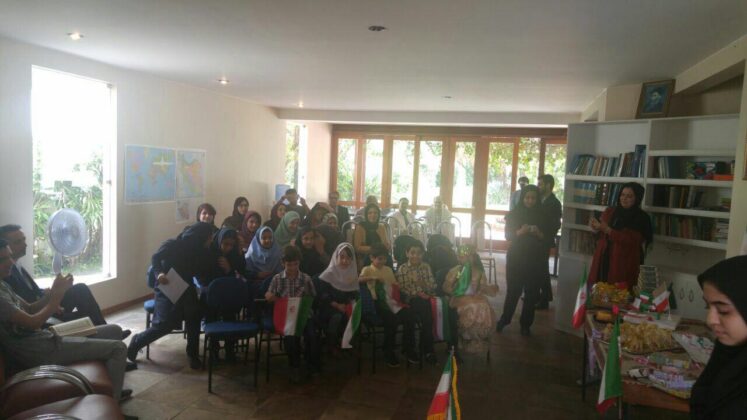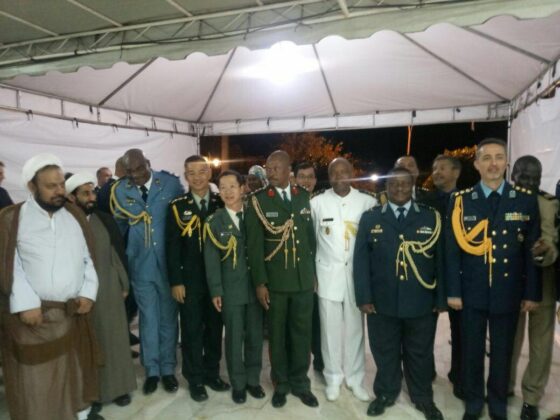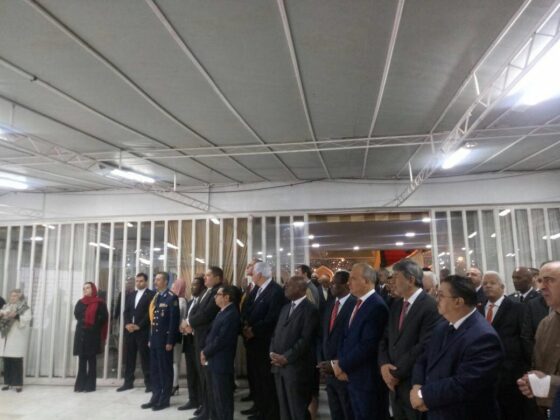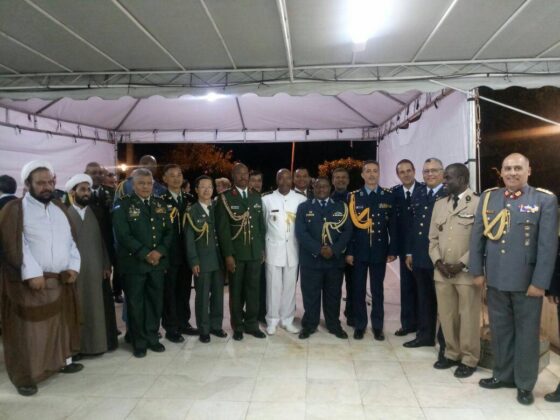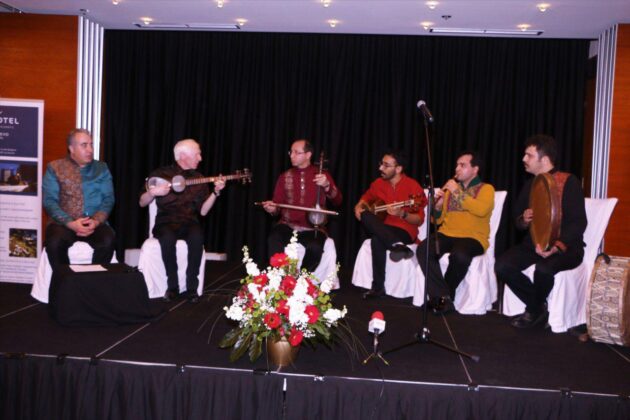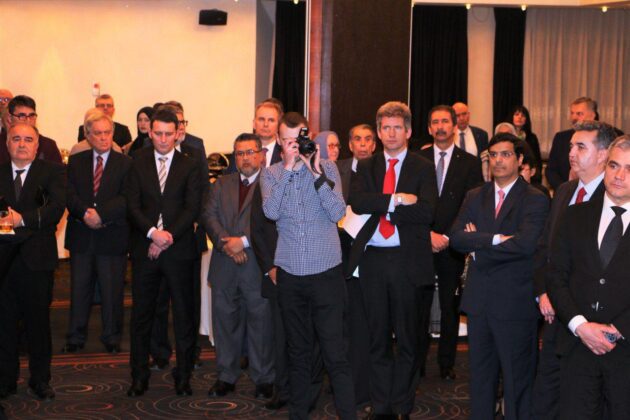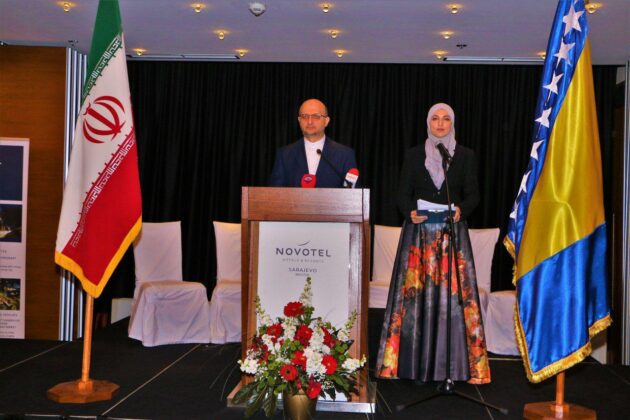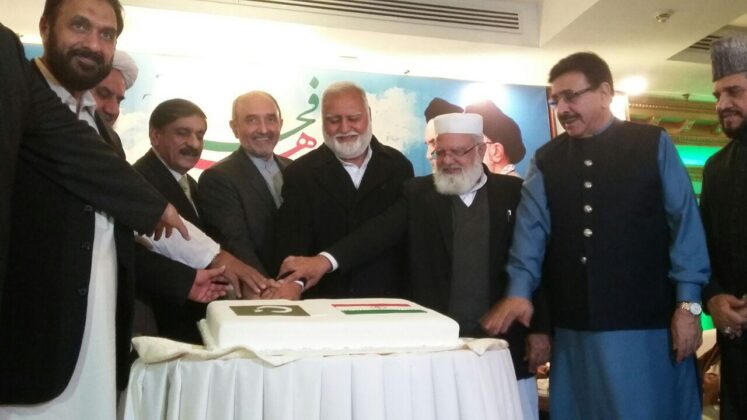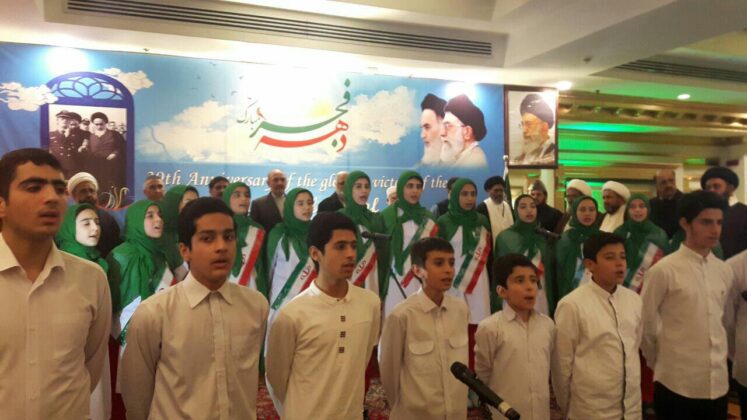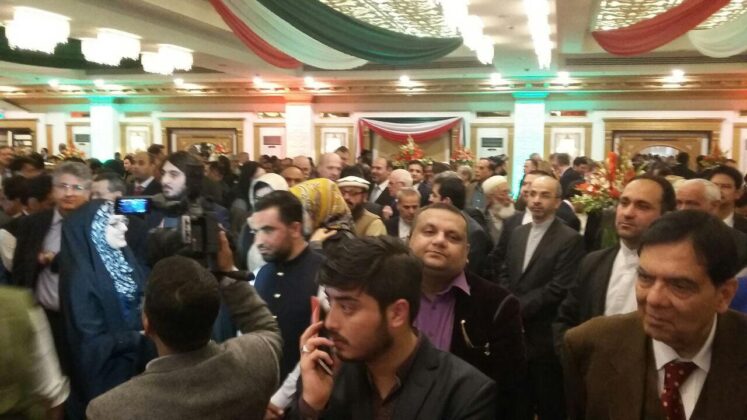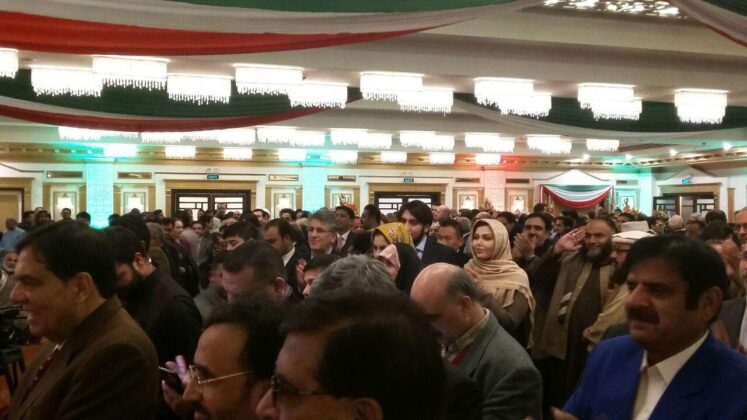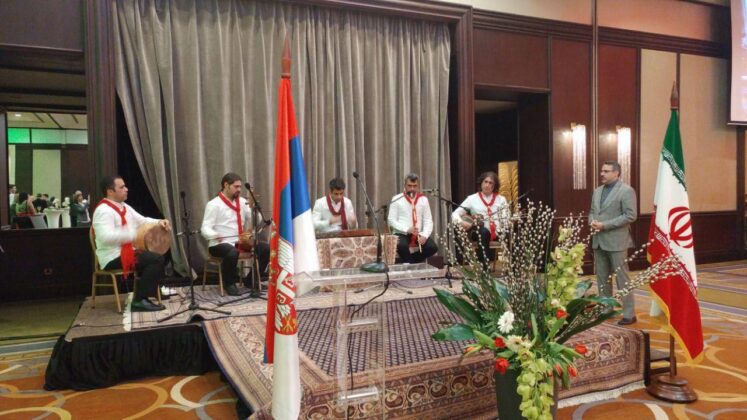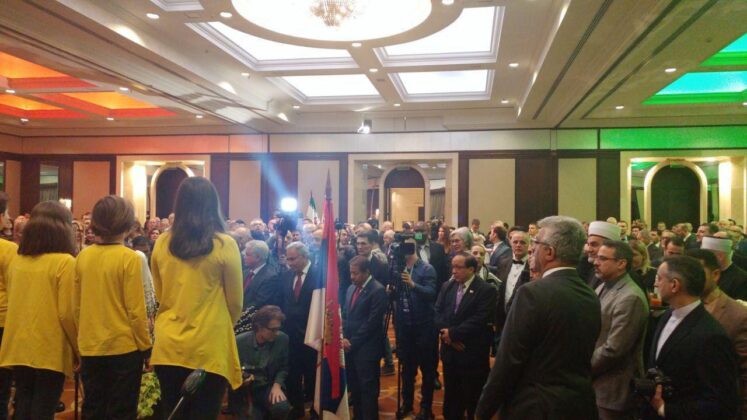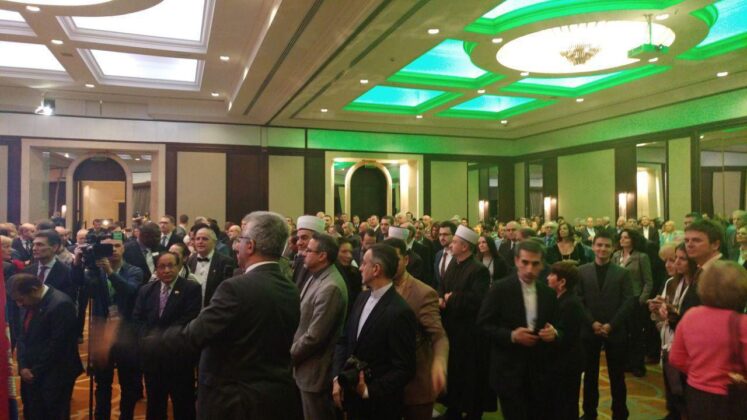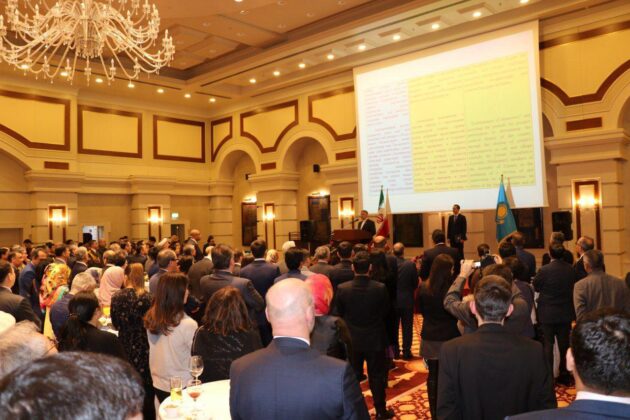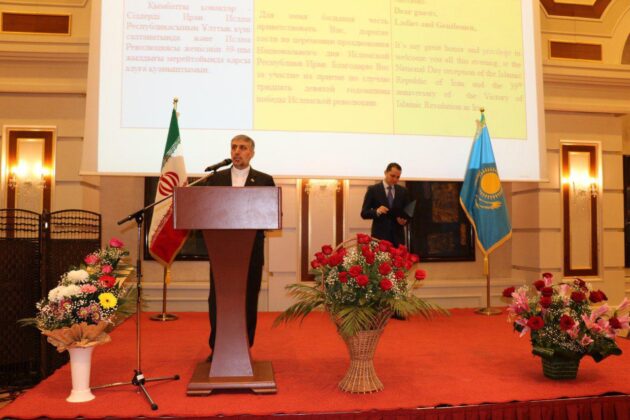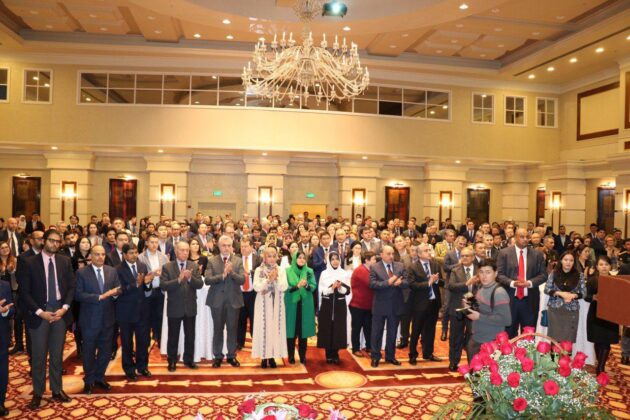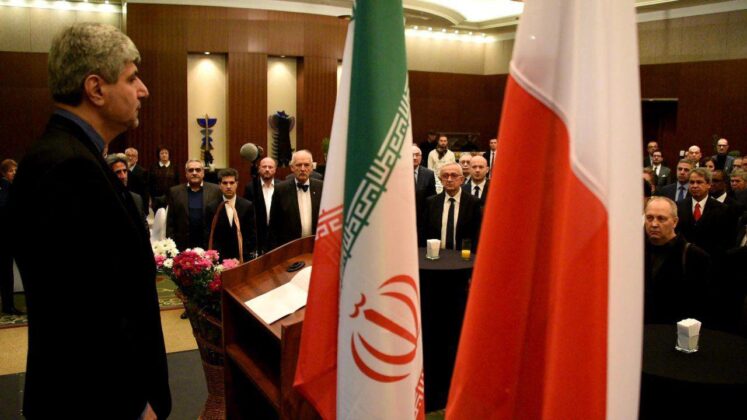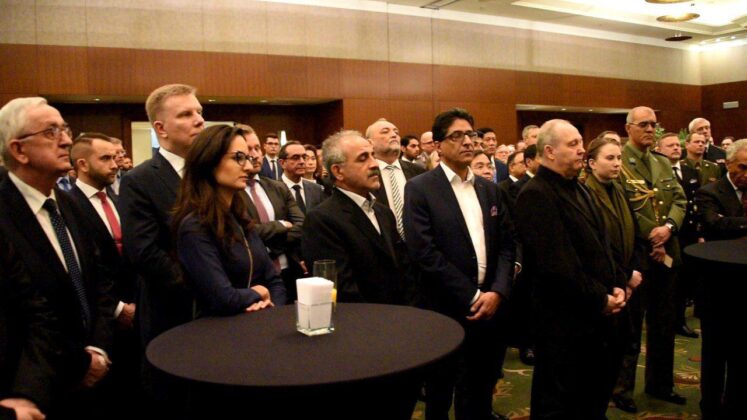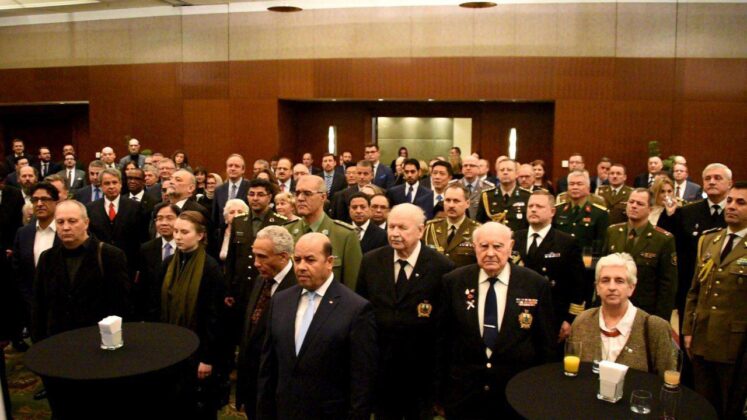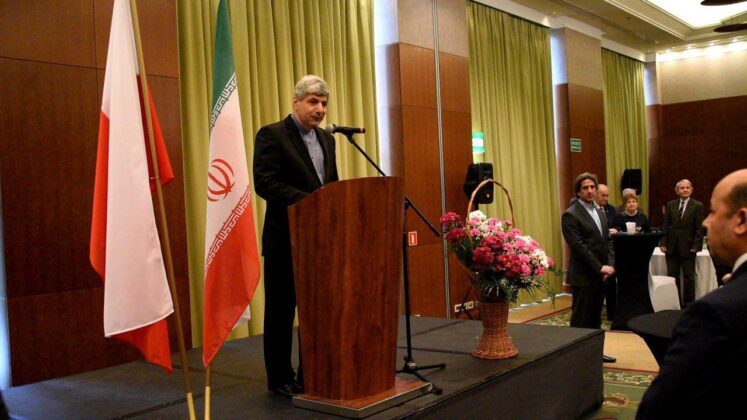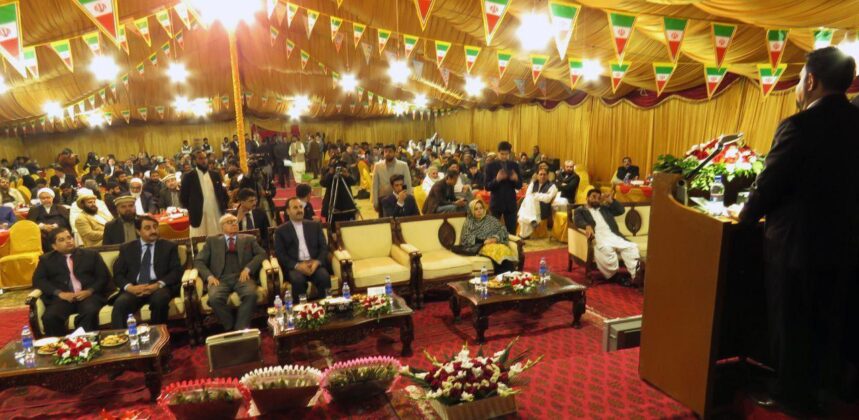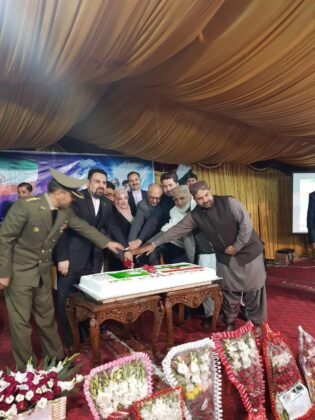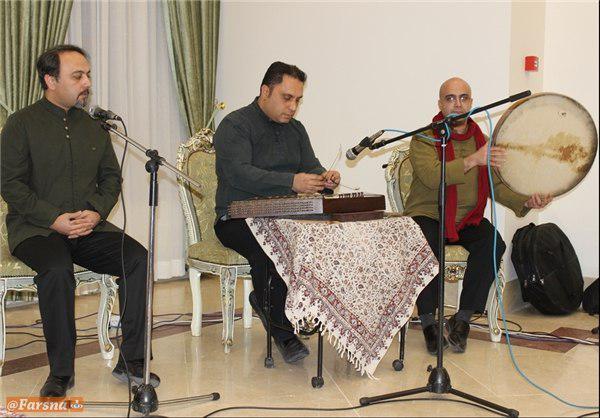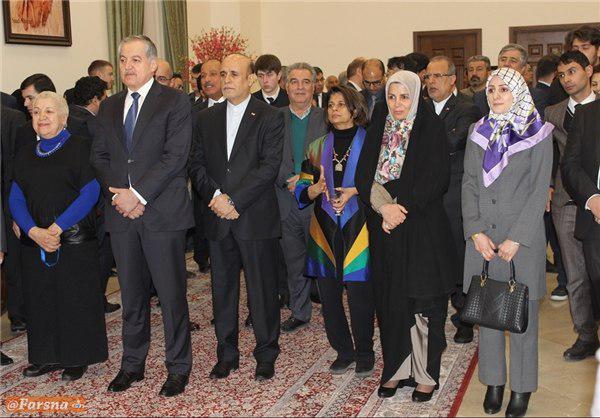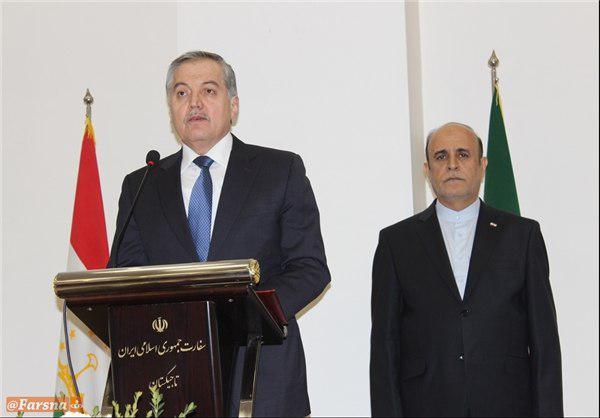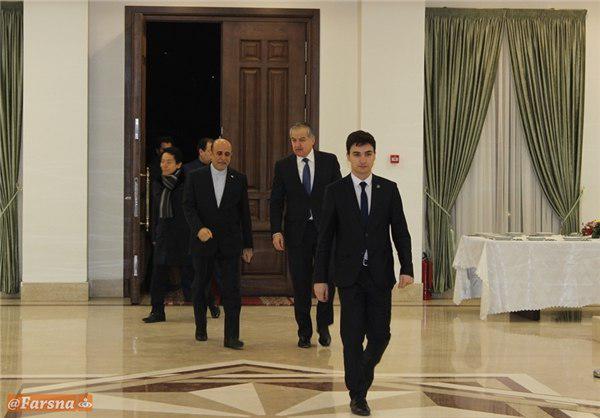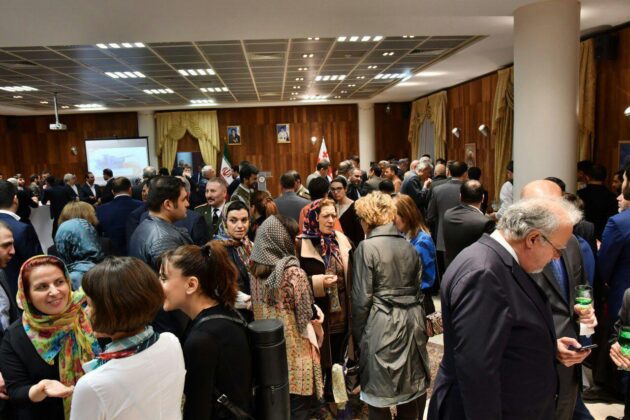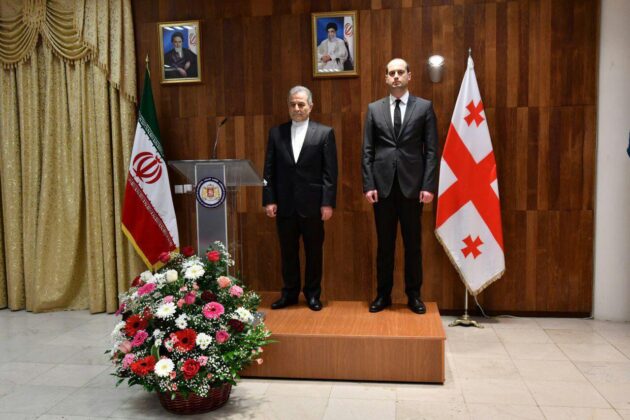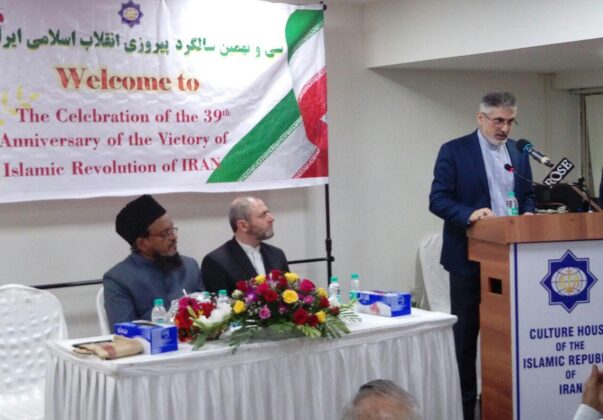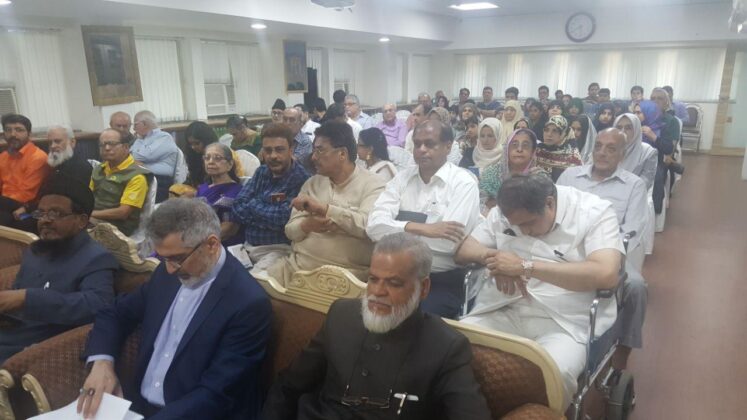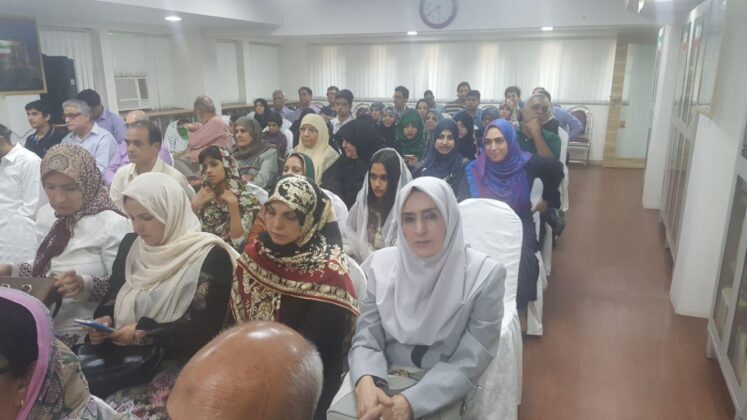In February 1979, the Islamic Revolution led by the late Imam Khomeini toppled the US-backed Pahlavi monarchy and set the stage for the establishment of the Islamic Republic of Iran.
Iranian people annually celebrate the anniversary of the victory in massive demonstrations in which anti-arrogance slogans are usually chanted.

The anniversary is also celebrated by Iranian missions and embassies across the world in ceremonies that are usually attended by high-ranking officials and diplomats residing in those countries.
According to a Farsi report by the IRIB News Agency, several foreign ambassadors, military attaches, diplomats, and representatives of international organizations attended a ceremony held in the Polish capital Warsaw to mark the 39th anniversary of the victory of Iran’s 1979 Islamic Revolution.
During the ceremony, Iranian Ambassador to Poland Ramin Mehmanparast described the Islamic Revolution of Iran as one of the most important developments of the 20th century, and highlighted its influence on popular and regional movements.
He also pointed to the 500-year-old history of ties between Tehran and Warsaw, and noted that the expansion of bilateral relations with Poland is high on the agenda of the Iranian administration.
The anniversary was also commemorated in a ceremony in Brasília, where several Brazilian officials, ambassadors and diplomats residing in the country were in attendance.

The Kazakh capital of Astana hosted a ceremony attended by the Central Asian state’s deputy minister of development and investment, and a number of military officials, lawmakers, academics, economic and social activists, diplomats and military attaches, and a group of Iranian expatriates living in Astana.
During the ceremony, Iranian Ambassador to Kazakhstan Mojtaba Damirchiloo described the 1979 Revolution as a movement aimed at rejecting domestic tyranny and foreign hegemony, and realizing freedom, justice, and independence.
He referred to the increased presence of women in different social fields as well as the country’s move towards democracy as the major achievements of the Islamic Revolution, saying, “Following the Revolution, the Iranian people started to make decision about the political fate of their country by choosing their representatives in local councils, the Parliament, the President, and the Assembly of Experts, which elects the country’s Leader.”
Damirchiloo also pointed to 26 years of relations between Iran and Kazakhstan, and hailed the growing trend of Tehran-Astana economic and political ties. The Kazakh deputy minister, for his part, congratulated Iran on its national day, and lauded the positive prospect of mutual cooperation between the two states.
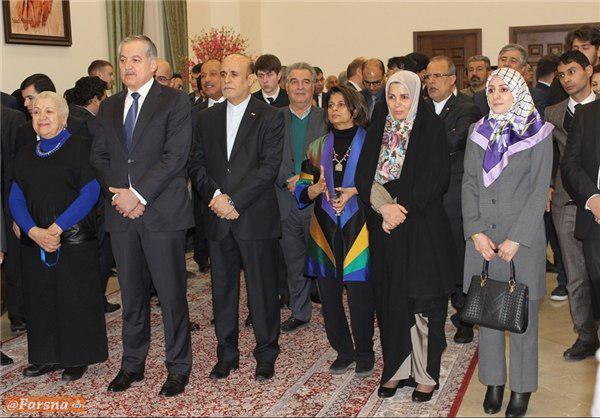
A similar ceremony was also held in the Tajik capital of Dushanbe. During the ceremony, Tajikistan’s Foreign Minister Sirodjidin Aslov congratulated Iran on the anniversary of the 1979 Revolution’s victory, and highlighted the special position of the Islamic Republic of Iran in his country’s foreign policy agenda.
Referring to various untapped capacities for expansion of mutual cooperation between Tehran and Dushanbe, he called on the officials of both countries to pay more attention to such potentialities.
“We must maintain the achievements gained within over two decades of relations in political, economic, business, scientific, and cultural fields,” Aslov noted, according to a report by Fars News Agency.
Also in the future, he added, we should promote our ties based on the principle of mutual respect, trust, non-interference in the internal affairs of the other country, friendship, and preserving the joint historical and cultural values in line with the interests of the two countries, which share Persian language and culture.
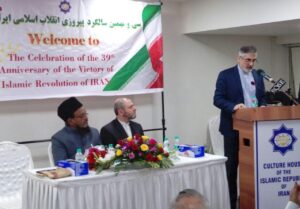
Indian people in the cities of Mumbai and Kargil in India’s Kashmir also celebrated the anniversary. The people of Kargil, the northernmost city of India, poured into the streets and chanted revolutionary slogans like Independence, Freedom, Islamic Republic, and Labbayk Ya Khamenei in support of the Leader of Iran’s Islamic Revolution Ayatollah Seyyed Ali Khamenei.
The people of Kargil are fond of the Islamic Iran and its 1979 Revolution, and annually hold glorious ceremonies and light up their streets to celebrate the anniversary of Iran’s Revolution.

Another major ceremony to mark the anniversary was the one held in Georgia. The ceremony was attended by Mikheil Janelidze, the vice-PM and foreign minister of Georgia, who lauded the growing relations between Tehran and Tbilisi, particularly in the fields of tourism and trade.
Also in attendance were the Georgian deputy minister of finance, deputy minister of economy, a number of Georgian lawmakers including the head of Iran-Georgia parliamentary friendship group, European ambassadors, and a group of Shiites living in the country.
Addressing the ceremony, Qavam Shahidi, the Iranian ambassador to Georgia, praised the Islamic Republic’s role in fight against terrorism and the uprooting of the inauspicious phenomenon, and called for further expansion of Tehran-Tbilisi cooperation in various fields.
He also referred to a 38-percent growth in the volume of Iran-Georgia trade ties during the past year, and highlighted the key role played by the two countries in the North-South corridor, linking the Black Sea to the Persian Gulf.

Ceremonies were also held in Bosnia and Herzegovina, Serbia, Albania, and Pakistan (one in Quetta and another one in Islamabad), among others.
A ceremony was also organized by a group of Iranian people residing in Washington DC in a mosque near the US capital, and was attended by elites, American Muslims, journalists, and Iranian expatriates.
Here are IRIB’s photos of the ceremonies held across the world:
